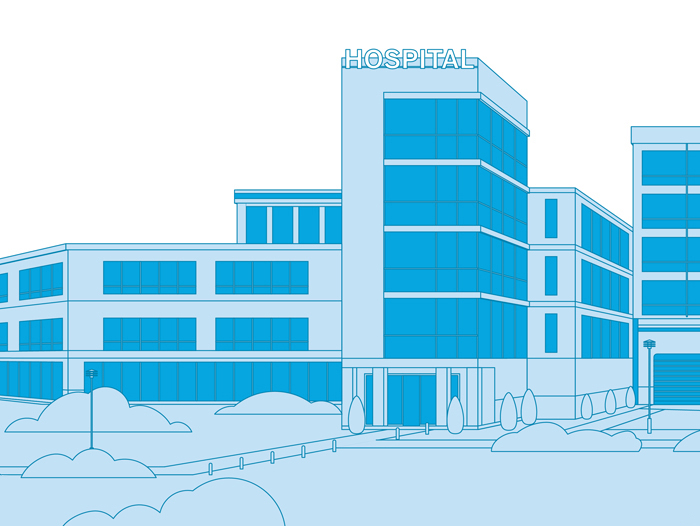Auto logout in seconds.
Continue LogoutAre you a morning person? If so, you might have inherited ancient DNA from human ancestors like Neanderthals that predispose you to waking up early, according to a new study published in Genome Biology and Evolution.
How ancient DNA may impact our circadian rhythms
Predecessors to modern humans, including Neanderthals and Denisovans, lived for hundreds of thousands of years before they disappeared from the fossil record around 40,000 years ago. When these species were still alive, they sometimes interbred with modern humans, and fragments of their DNA can still be found in most living humans today.
Over the last few years, researchers have found that some of the genes passed on by Neanderthals and Denisovans may have given humans survival advantages. For example, some of the genes that became more common over many generations were related to sleep.
In a new study, researchers examined 246 genes associated with circadian rhythms, comparing the ancient versions in extinct hominins to those found in modern humans.
In their analysis, researchers identified 1,000 mutations that were unique to either living humans or Neanderthals and Denisovans. A small number of the mutations exclusive to Neanderthals and Denisovans were also inherited by living humans.
To understand the potential effects of these inherited mutations, the researchers analyzed data from the UK Biobank, a British database that contains DNA from half a million participants. The participants also answered several health-related questions, including whether they were early birds or night owls.
Overall, participants who had specific genetic variants from Neanderthals were more likely to report a preference for waking up early, saying that they were "definitely a 'morning' person" or "more a 'morning' than 'evening' person."
"We've found many Neanderthal variants that consistently associate with a propensity for being a morning person," said Tony Capra, an evolutionary geneticist at the University of California, San Francisco, and one of the study's authors. "Their effects are in the context of hundreds of other genes, but it is suggestive there is something meaningful about this."
Commentary
According to the researchers, the genetic variants linked to circadian rhythms in Neanderthals may have helped them adapt to living in areas at higher latitudes, which were more likely to have variable hours of daylight during the year. In comparison, early humans lived in parts of Africa, which were relatively close to the equator and received roughly the same amount of sunlight year-round.
As early humans expanded to other areas of the world, they interbred with Neanderthals and Denisovans, inheriting some of their genes impacting circadian rhythms. These new genes likely helped humans adapt to new geographic regions.
Joshua Akey, a geneticist at Princeton University who was not involved in the study, said that while it's plausible some of the genetic variants inherited from Neanderthal DNA may impact circadian rhythms, people's sleep rhythms are biologically complex and cannot be explained by those variants alone.
"It is probably not something where you can completely ascribe whether you're a morning or night person to Neanderthal ancestry," Akey said.
In general, understanding how our ancestors and their genomes evolved over time due to changing environments could help researchers find ways to help people better adapt to the modern world. For example, late-night shifts, bright lights from cities, and glowing electronics have disrupted people's circadian rhythms. While these disruptions make it harder to get a good night's sleep, they can also increase the risk of obesity, cancer, and other health conditions.
"In modern environments we are really beginning to appreciate how detrimental to our health it can be to be misaligned with our environmental light-dark cues," Capra said. Currently, the researchers hope to expand the study to include data from volunteers of other ancestries since it was initially limited to British people.
Over time, the research will help scientists understand how people with different genetic variations related to circadian rhythms "might be better- or worse-suited to certain types of behaviors or exposures," Capra said. (Zimmer, New York Times, 12/14; Woodward, Wall Street Journal, 12/14)
Multiple studies suggest a variety of benefits are associated with hitting the sleep "sweet spot," but how long is just right for most people? Writing for the New York Times, Jane Brody shares the sleep target people should aim for — and offers six expert tips to get a better night's sleep.
Don't miss out on the latest Advisory Board insights
Create your free account to access 1 resource, including the latest research and webinars.
Want access without creating an account?
You have 1 free members-only resource remaining this month.
1 free members-only resources remaining
1 free members-only resources remaining
You've reached your limit of free insights
Become a member to access all of Advisory Board's resources, events, and experts
Never miss out on the latest innovative health care content tailored to you.
Benefits include:
You've reached your limit of free insights
Become a member to access all of Advisory Board's resources, events, and experts
Never miss out on the latest innovative health care content tailored to you.
Benefits include:
This content is available through your Curated Research partnership with Advisory Board. Click on ‘view this resource’ to read the full piece
Email ask@advisory.com to learn more
Click on ‘Become a Member’ to learn about the benefits of a Full-Access partnership with Advisory Board
Never miss out on the latest innovative health care content tailored to you.
Benefits Include:
This is for members only. Learn more.
Click on ‘Become a Member’ to learn about the benefits of a Full-Access partnership with Advisory Board
Never miss out on the latest innovative health care content tailored to you.



